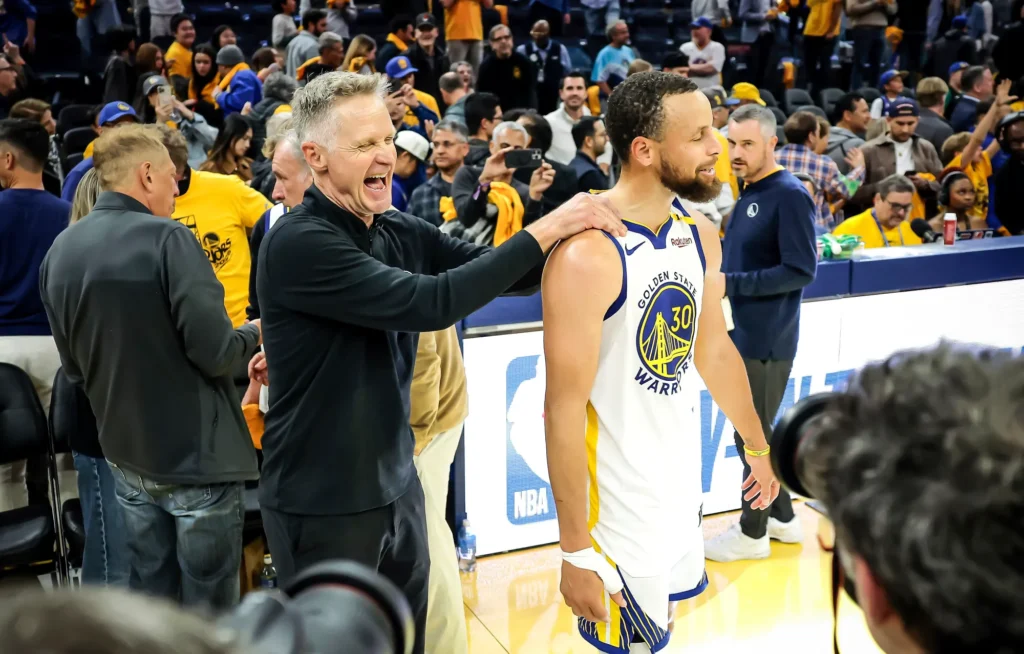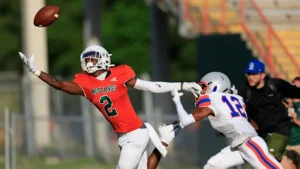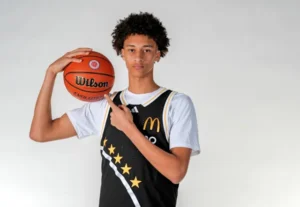
To promote sustainability and innovation at M&T Bank Stadium, the Baltimore Ravens have named RTS as their official waste and recycling partner.
In recent years, sustainability has become a central focus for businesses, sports organizations, and cities alike, especially as climate change and environmental issues dominate global discussions. In response to this, M&T Bank Stadium, home of the Baltimore Ravens, has partnered with RTS (Recycle Track Systems), a leading waste and recycling service provider, to take bold steps toward promoting environmental sustainability and innovation within the stadium and its operations. This strategic collaboration is a reflection of both the Ravens’ commitment to sustainability and RTS’s expertise in waste management and recycling.
In this essay, we will explore the goals and significance of the Ravens’ partnership with RTS, the innovative waste management practices RTS brings to the stadium, and the broader impact on the local community, the fans, and the environment. Additionally, we will highlight how this partnership sets a new standard for sports stadiums and other public venues in their pursuit of sustainability.
The Role of RTS in Waste and Recycling Management
RTS is a technology-driven waste and recycling service company that offers customized waste management solutions for businesses, municipalities, and organizations across the U.S. Known for its data-centric approach, RTS uses smart technology and real-time monitoring systems to optimize waste collection, recycling, and waste diversion processes.
RTS focuses on sustainability by reducing waste sent to landfills, improving recycling rates, and educating customers about sustainable practices. Their services go beyond traditional waste management, involving tailored solutions to ensure that materials are disposed of or recycled in the most environmentally responsible way. This aligns perfectly with the Ravens’ desire to not only maintain an eco-friendly stadium but to also set a standard of excellence in the sports industry for environmental responsibility.
The Importance of Sustainability in Sports Stadiums
The environmental impact of large sports stadiums has long been a subject of concern. Stadiums and arenas are high-traffic venues that generate a significant amount of waste, particularly during events with thousands of attendees. The demand for energy, water, and other resources in such facilities is substantial, and if not managed properly, it can result in excessive carbon footprints, energy consumption, and waste generation.
For years, the sports industry has worked toward minimizing these impacts by adopting sustainable practices such as energy-efficient lighting, waste diversion programs, and water conservation strategies. Many teams and stadiums are increasingly committed to reducing their environmental impact and leading the way in promoting eco-friendly initiatives. The Ravens’ partnership with RTS represents a concerted effort to further these practices while also embracing innovation and technology to address pressing environmental challenges.
Key Goals of the Ravens’ Partnership with RTS
By naming RTS as their official waste and recycling partner, the Baltimore Ravens are setting ambitious goals for sustainability at M&T Bank Stadium. These goals include:
- Waste Diversion: One of the primary objectives of the partnership is to reduce the amount of waste that is sent to landfills. RTS uses smart waste bins and real-time data tracking to efficiently sort recyclables from non-recyclables. The goal is to achieve a higher recycling rate at M&T Bank Stadium by increasing diversion rates and lowering waste-to-landfill statistics.
- Education and Awareness: Sustainability is not just about infrastructure; it’s also about fostering a culture of awareness and responsibility among fans and staff. RTS will work closely with the Ravens to educate fans and event attendees about proper waste disposal and recycling practices. Educational campaigns, signage, and engaging fan experiences will be part of this initiative to encourage environmentally responsible behavior.
- Smart Technology and Data Analytics: RTS brings cutting-edge technology to M&T Bank Stadium, enabling real-time monitoring of waste streams and providing actionable insights for improvement. By analyzing waste data, RTS helps the Ravens track the effectiveness of their sustainability initiatives, identify trends, and make data-driven decisions to further optimize waste management processes.
- Sustainability Metrics: One key component of this partnership is measuring and communicating the impact of the Ravens’ sustainability initiatives. RTS will help track key performance indicators (KPIs), such as the amount of waste diverted from landfills, the increase in recycling rates, and the reduction of carbon emissions associated with waste management.
- Zero-Waste Goal: Though achieving a completely zero-waste stadium is a challenging and long-term goal, the partnership sets the groundwork for moving toward a “zero-waste” status. By continuously improving waste diversion rates, recycling efforts, and waste reduction strategies, the Ravens and RTS are committed to minimizing the environmental impact of events held at M&T Bank Stadium.
Innovative Waste Management Practices Introduced by RTS
RTS brings a wealth of experience and innovation to waste management at M&T Bank Stadium. Through the integration of technology and personalized solutions, the company aims to transform how waste is managed at large venues like M&T Bank Stadium. Below are some of the innovative practices and technologies that RTS brings to the table:
- Smart Waste Bins: RTS utilizes smart waste bins that are equipped with sensors to monitor fill levels in real time. These bins can automatically notify waste collectors when they are full, which allows for more efficient waste collection and reduces unnecessary waste hauling. This real-time data helps prevent overflows and ensures that bins are emptied promptly during events, improving the fan experience and minimizing waste spillage.
- Waste Analytics Dashboard: RTS provides an advanced waste analytics dashboard that allows the Ravens’ management team to track waste diversion rates and recycling performance in real time. This dashboard gives insights into how much material is being recycled, how much is being sent to landfills, and where improvements can be made. By visualizing this data, the team can continually adjust their strategies to optimize waste reduction efforts.
- On-Site Sorting and Recovery: RTS will implement on-site sorting and recovery techniques to separate recyclables from trash more effectively. By deploying trained personnel and specialized equipment, RTS ensures that as much material as possible is diverted to recycling facilities instead of landfills.
- Sustainable Packaging: Another key initiative of the partnership is reducing single-use plastics and other non-recyclable packaging at the stadium. RTS will collaborate with vendors and the Ravens to encourage the use of compostable or recyclable materials for food and beverage packaging, aligning with the broader goals of reducing plastic waste and increasing sustainability.
- Green Waste Disposal: RTS will also work with M&T Bank Stadium to improve the disposal and composting of organic waste, such as food scraps and other biodegradable materials. This reduces landfill use and creates opportunities for the composting of organic materials, contributing to a more sustainable waste stream.
Community Engagement and Fan Involvement
One of the most exciting aspects of the Ravens’ collaboration with RTS is its potential to engage fans and the local community in the sustainability efforts. This partnership presents an opportunity to raise awareness about environmental responsibility and encourage fans to participate in the Ravens’ sustainability efforts. Here are some ways RTS and the Ravens will involve fans:
- Fan Education Campaigns: The partnership will roll out educational campaigns to inform fans about the importance of recycling, composting, and reducing waste. These campaigns will take place in various forms, such as in-stadium signage, social media posts, and announcements during events. Fans will be encouraged to take personal responsibility for waste management by properly disposing of items in designated recycling and composting bins.
- Sustainable Merchandise: As part of the sustainability initiative, the Ravens may explore offering eco-friendly merchandise, such as reusable water bottles, bags, and apparel made from sustainable materials. This aligns with the broader push to reduce single-use plastics and promote the use of more sustainable products.
- Volunteer Opportunities: RTS and the Ravens could collaborate on community outreach programs and volunteer events, where fans can get involved in local environmental initiatives. Whether it’s through stadium clean-ups or recycling drives, fans will have an opportunity to participate in hands-on efforts that contribute to the broader sustainability goals.
- Fan Rewards and Incentives: The Ravens may also introduce a rewards program where fans earn points for recycling or participating in sustainable practices at the stadium. This could incentivize positive behavior and foster a sense of collective responsibility among fans.
The Broader Impact on Baltimore and the Sports Industry
The partnership between the Ravens and RTS has the potential to have a lasting impact beyond M&T Bank Stadium. First and foremost, this initiative will help the city of Baltimore move closer to its environmental goals by reducing the waste generated by large events and encouraging more sustainable practices among residents and businesses.
Moreover, by embracing innovation in waste management and sustainability, the Ravens set an example for other sports teams and stadiums across the country. As one of the most prominent NFL teams, the Ravens’ efforts in promoting sustainability can inspire other organizations to follow suit and adopt similar practices. This has the potential to create a ripple effect, where stadiums and public venues across the nation embrace sustainability as part of their core values.
The partnership between the Baltimore Ravens and RTS marks a significant step toward a more sustainable future for M&T Bank Stadium, the Ravens organization, and the city of Baltimore. By leveraging innovative waste management solutions and working collaboratively with fans and local communities, the Ravens are taking bold action to reduce their environmental footprint while fostering a culture of sustainability. This collaboration not only benefits the environment but also sets a powerful example for the sports industry as a whole.
In the coming years, the partnership between the Ravens and RTS is likely to evolve, bringing even more innovative solutions to the table. Whether through data-driven waste management, improved recycling programs, or fan engagement, this partnership stands as a testament to the power of collaboration and the potential for sports organizations to play a leading role in the fight for a more sustainable world.





